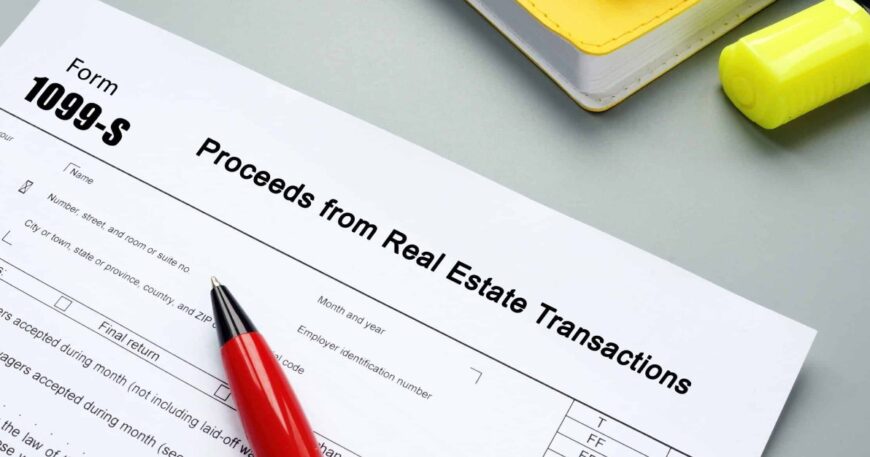Form 1099-S with Syed Professional Services
Real estate transactions can involve complex paperwork, and tax implications are no exception. Real Estate Transactions Proceeds from Real Estate Transactions are vital in reporting these transactions to the IRS. This informative guide by Syed Professional Services explores what Form 1099-S is, who receives it, the information it captures, and how it impacts your tax situation. We’ll also explain how our team of tax professionals can ensure accurate and efficient handling of your real estate tax obligations.
Understanding Real Estate Transactions and Form 1099-S
When you sell or exchange real estate (land, buildings, or other structures), the party responsible for closing the transaction typically issues Real Estate Transactions to report the gross proceeds from the sale to the IRS. This form is an informational document and isn’t a tax form itself. However, the information on Real Estate Transactions is crucial for accurately reporting your real estate sale on your tax return.
Who Receives Form 1099-S?
You’ll typically receive Form 1099-S if you sell or exchange real estate and the gross proceeds from the sale are $600 or more. This applies to various real estate types, including:
- Single-family homes
- Condominiums
- Apartment buildings
- Vacant land
- Commercial properties
Exceptions to Receiving Form 1099-S
There are some exceptions to receiving Form 1099-S, even if you sell real estate. Here are a few common scenarios:
- Sale to Related Party: If you sell real estate to a related party (such as a spouse, parent, child, or sibling) at a loss, you generally won’t receive Form 1099-S.
- Form 1099-A Received: You may sometimes receive Form 1099-A (Acquisition or Abandonment of Secured Property) instead of Real Estate Transactions if your real estate sale involves foreclosure or repossession.
- Sale Price Below $600: If the gross proceeds from your real estate sale fall below $600. The seller isn’t obligated to issue Real Estate Transactions.
What Information Does Form 1099-S Contain?
Form 1099-S captures vital details about your real estate transaction:
- Box 1: Gross Proceeds from Real Estate Transactions: This box indicates the total sales price you received from selling the property.
- Box 2: Closing Date: This section reflects when the real estate transaction was officially closed.
- Payer Information: The form identifies the party responsible for closing the transaction (typically the closing agent or real estate broker) who issued the Real Estate Transactions.
- Your Taxpayer Identification Number (TIN): This box includes your Social Security number (SSN) or Individual Taxpayer Identification Number (ITIN).
Understanding Tax Implications of Real Estate Sales
The sale of real estate can have tax consequences depending on several factors, including:
- Basis: The value includes the original cost of the property as well as any improvements you have made.
- Gain or Loss: Your gain or loss from the sale is calculated by subtracting the basis from the gross proceeds reported on Form 1099-S.
- Capital Gains Tax Rates: Profits from real estate sales (capital gains) are generally taxed at lower capital gains rates compared to ordinary income tax rates. However, the specific rate you pay depends on your taxable income and whether the property was held for the short term. (less than one year) or long-term (more than one year).
- Selling Expenses: Closing costs and other selling expenses associated with the transaction can be deducted from the gross proceeds to reduce your taxable gain.
Syed Professional Services: Your Real Estate Tax Partner
Navigating the tax implications of real estate transactions can be complex. Syed Professional Services can empower you with:
- Understanding Form 1099-S:. We’ll explain the information on your Real Estate Transactions and their relevance to your tax situation.
- Calculating Capital Gains or Losses: Our tax professionals can help you determine your gain or loss from the sale, taking into account your basis and selling expenses.
- Tax Rate Optimization: We can analyze your situation and recommend strategies to minimize your overall tax burden by taking advantage of the potential. Tax benefits associated with real estate sales.
- Recordkeeping and Documentation: We can advise you on maintaining proper records and documentation to support




